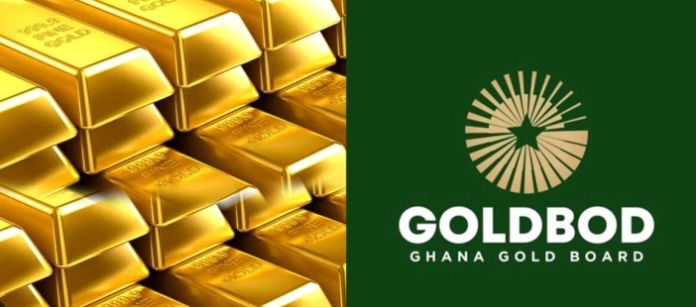Five African finance ministers praised Ghana’s gold governance approach at a high-level African Development Bank meeting in Washington, calling it a blueprint for resource management across the continent.
The meeting took place on the sidelines of the 2025 International Monetary Fund and World Bank Annual Meetings, where finance chiefs from Ghana, Liberia, Sierra Leone, The Gambia, and Sudan gathered with African Development Bank Group President Dr. Sidi Ould Tah. What stood out wasn’t just another policy discussion, but genuine enthusiasm about how Ghana has transformed its relationship with gold.
Ministers highlighted how the Ghana Gold Board, known as GOLDBOD, represents something different from the old playbook. Instead of allowing precious minerals to slip through regulatory cracks, Ghana created a single authority to oversee everything from buying and weighing to assessing value and managing exports. It’s working under the Finance Ministry’s supervision, and the results are starting to show.
The model caught attention because it addresses a problem many African nations share. For decades, countries rich in natural resources watched their wealth flow outward without capturing full value domestically. Ghana’s approach demonstrates there’s another way, one that strengthens currency reserves while maintaining transparency.
Several ministers reportedly expressed interest in studying the framework for potential adoption in their own countries. The system operates on a straightforward principle: centralize gold transactions through licensed aggregators and local traders, cutting out the fragmented export system that previously existed. This isn’t just about bureaucratic reorganization; it’s about ensuring mineral wealth directly supports national development priorities.
Since Ghana launched its broader gold purchase program in 2023, central bank reserves have climbed from 8.7 tonnes to approximately 37 tonnes. That accumulation gives monetary authorities more flexibility to manage exchange rate stability, something particularly valuable as global economic uncertainties persist.
The Washington meeting’s focus on GOLDBOD comes at a moment when the African Development Bank has been urging countries to consider backing their currencies with strategic minerals. Ghana’s experience offers practical evidence that such approaches can work when properly structured and supervised.
What makes this model attractive to other nations isn’t complicated. It provides clear regulatory authority, improves tracking of mineral flows, and creates accountability mechanisms that previous systems lacked. For countries watching their natural resources generate limited domestic benefits, that represents a compelling alternative worth examining closely.
The Finance Ministry’s oversight role ensures political accountability while GOLDBOD handles technical operations. This separation of strategic direction from day-to-day management helps maintain both efficiency and transparency, qualities the ministers gathering in Washington specifically praised during their discussions.
As African economies continue searching for sustainable development pathways, Ghana’s gold governance framework offers something increasingly rare: a homegrown solution that appears to be delivering measurable results without requiring external templates or imported expertise.
Source: newsghana.com.gh











